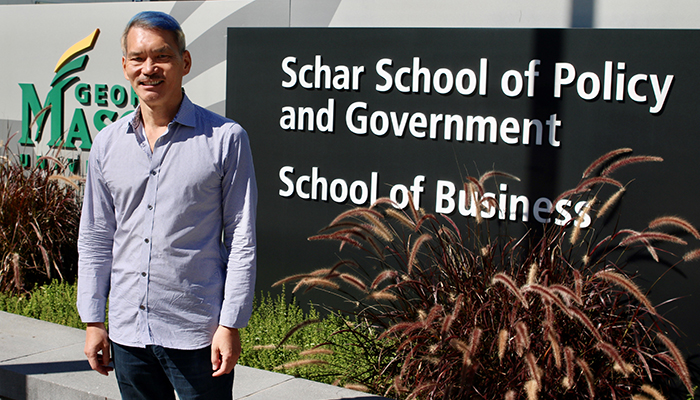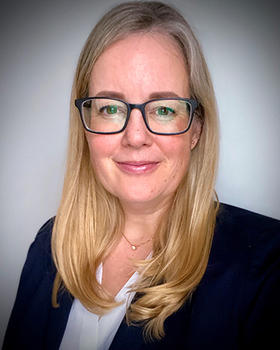

T. Spike Terwilliger spent his 35-year career in public service, most of it in the policy realm. But if he’s honest, he said, he had little to no formal public service education for most of what he did. And that troubles him.
“I was making policy at a fairly junior age,” he said. “In fairness, I probably could have done a better job had I had a stronger background” in policy.
Now that he’s retired, the Arlington, Virginia, resident and former adjunct professor at George Mason University is seeing to it that scholars in the public policy field are prepared for their careers: This year sees the inaugural awarding of the T. Spike Terwilliger Fellowship, thanks to a generous donation by the namesake.
The fund provides research support and tuition for doctoral students in the Schar School’s PhD in Public Policy program.
“We have so many people in public policy that don’t have even a foundational aspect of public policy,” he said. “And I’m one of those people who didn’t have a background in formal [policy] education. ”I created the fellowship so that there would be an additional way to increase the research [in the field] and hopefully put a spotlight on the importance of having programs in public policy. I mean, it’s an incredibly important area.”
He chose to endow the fellowship at the Schar School after researching other programs in the region. “The standing of George Mason in the public policy arena in the Washington area is what made me go with Mason,” he said.
The inaugural beneficiary of the fellowship is Camilla B. Bosanquet, who is in her fourth year of the public policy doctoral program at the Schar School. After enjoying a robust variety of courses related to transportation and policy, the retired Coast Guard officer from Alexandria, Virginia, is now learning advanced research tools to study the intricacies of global and international public policy, with a focus on illicit trade, criminal trafficking, and corruption.
“This fellowship award came as a complete surprise,” she said, adding that “the fellowship will immediately enable me to secure specialized training on counterfeit goods and intellectual property rights, which is important at this stage of my research into illicit trade, criminal trafficking, money laundering, and corruption.”
She intends to complete an additional two professional certificate courses, “with funding remaining for additional research costs.”
“More than simply being efficient, [taking the courses] will be incredibly helpful in identifying key policy considerations and understanding nuanced elements of global challenges associated with transnational organized crime.”
The fellowship also allowed her to look into “training programs, webinars, calls for papers, reports, and conferences,” she said, most of which require additional funding.
“I was incentivized to devote both time and attention to aggregate a variety of resources relevant to my work,” she said. She developed a “wish list of what programs might help me reach the finish line sooner. I was able to think, wonder, and identify resources that will enhance my research and professional network.
“I am grateful to Dr. Terwilliger for both the fellowship funding and the push to think more expansively about resources available within my own research field.”
Terwilliger’s own formal education is in higher education from the College of William & Mary—he was briefly an adjunct in Mason’s College of Education and Human Development in the early 2000s—and spent 28 years in the Air Force before retiring from the Federal Deposit Insurance Corporation. He was an associate professor of national security policy at the University of Texas-Austin and an adjunct professor at the University of Maryland University College in leadership and communications.
He has turned his early background into a podcast, telling his life story as “a boy thrown away at birth in Korea and rescued at the brink of death.” There are now 23 episodes of Boy in the Trash Can, which tells the “journey and twists and turns of life through the lens of a gay Asian American who lived the American dream.”
